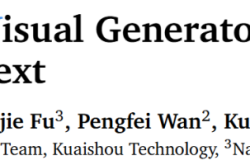WeChat, Taobao, Douyin, and Meituan Embrace 'Gift Giving,' but Who Will Benefit?
![]() 01/10 2025
01/10 2025
![]() 682
682
The world outside of China harbors two contrasting views on internet titans like Tencent, ByteDance, and Alibaba.
One perspective suggests that internet giants are not extraordinary, and entrepreneurs can easily replicate a 'Tencent/Alibaba in the XXX field' or disrupt these giants with a single idea/innovation. This mindset was prevalent in the domestic internet market a decade ago.
Conversely, another perspective believes that when internet giants enter a market, small and medium-sized entrepreneurs are doomed. The giants' extensive human, material, and financial resources can easily overwhelm these smaller players.
The first mindset stems from the early internet industry's numerous 'wealth creation myths,' where abundant opportunities and significant investments could be secured by almost any internet venture. The second mindset is a conscious awakening after being 'bullied' by internet giants, with entrepreneurs deeply feeling the pressure from these giants and developing subconscious reactions.
Thus, when WeChat, with 1.382 billion monthly active users, announced the launch of the 'Gift Giving' feature, the outside world buzzed once again. Multiple listed companies issued announcements stating they were actively deploying WeChat Stores, and even food companies reported that their daily transactions and new user acquisitions had increased by more than 500% compared to the previous period.
With the 'Gift Giving' feature of WeChat Stores, will WeChat e-commerce take off? Further, could WeChat Stores grow into the next e-commerce platform comparable to Taobao, Pinduoduo, JD.com, or Douyin?
In fact, within Tencent, there has been vigilance against overly high expectations for the 'Gift Giving' feature of WeChat Stores. Tencent's PR Director Zhang Jun has responded multiple times to the 'Gift Giving' feature, saying, for example, 'Recently, we have indeed launched some new features, and the product is constantly iterating. However, I kindly ask everyone not to set too high a tone for us, using words like 'epic' or 'surprise attack,' which we really can't afford. The priority is to focus on doing a good job with the product.'
He also denied any business plans for gift-giving through WeChat Stores, saying, 'Why do some people always believe something exists just because they want it to? We haven't given ourselves any grand plans; we just want to do something down-to-earth. Please, don't make business plans for us.'
Tencent aims to be rational, but its occasional hints of ambition make it difficult for the outside world to remain so. For instance, in the 'Me' channel at the bottom, the 'Orders & Card Pack' interface includes 'Gifts' and 'Shopping Cart,' and users' orders in WeChat Stores can also be displayed here, which is very similar to e-commerce platforms. Will WeChat e-commerce succeed? Will it disrupt e-commerce platforms like Taobao, Pinduoduo, JD.com, and others? This naturally leads people to imagine the best or worst scenarios.
Taobao, Douyin, and Meituan are all promoting the 'Gift Giving' feature.
Since the second half of 2024, interconnectivity between internet giants like Tencent, Alibaba, JD.com, and ByteDance has been gradually progressing. However, interconnectivity does not mean that giants are not vigilant towards other companies; after all, no one wants to be 'ambushed' from behind.
On December 18, 2024, the WeChat team announced that WeChat Stores had officially begun gray-scale testing of the 'Gift Giving' feature.


On December 26, 2024, media outlets discovered that Douyin had also launched a feature similar to WeChat Stores' 'Gift Giving,' enabling gift-giving on Douyin. Douyin mentioned that as early as January 2024, it had introduced the 'Send at Will' feature based on group-buying vouchers, which was essentially 'gift giving' but focused more on lifestyle services at the time. The current gift-giving feature on Douyin includes e-commerce.
On January 9, 2025, Taobao also announced the 'Gift Giving' feature, allowing users to interact with gift givers and receivers through 'Taobao Passwords.'
Recently, some netizens have found that Meituan also supports the 'Gift Giving' feature. Users can directly search for 'Gift' or 'Send Milk Tea' on Meituan Delivery to enter the gift-giving page, which mainly includes categories like coffee and milk tea, not general e-commerce products.
Judging from the actions of Taobao, Douyin, and Meituan, their responses have not been slow after the popularity of WeChat Stores' 'Gift Giving' feature. In fact, some platforms had already introduced gift-giving features earlier. WeChat was not the first to launch this feature, but its immense influence has made 'Gift Giving' a hit.
Guo Jing's Internet Circle believes that following Taobao, Douyin, and Meituan, more and more e-commerce platforms will introduce the 'Gift Giving' feature, which is likely to become a standard feature in the e-commerce industry, not exclusive to WeChat. There are no factors restricting other platforms from launching this feature.
If the 'Gift Giving' feature becomes a standard in the e-commerce industry, will those who initially overestimated WeChat Stores' 'Gift Giving' be taken aback? Since any platform can meet user needs, WeChat's scarcity value diminishes. From a practical value perspective, which platform cannot offer gift-giving? The ideal is abundant, but the reality is harsh.
Unable to Bear the Weight of E-commerce
Will giants who 'sell shovels' achieve good results by personally going down to 'pan for gold'? The answer is no. For example, in search engines, in 2022 alone, Google paid Apple at least $20 billion to be the default search engine on Safari.
Logically, running a search engine should be more profitable than receiving advertising fees from Google, but Apple has not launched its own search engine. Eddy Cue, Apple's Senior Vice President of Services, once explained that Apple is focused on other growth areas, and developing a search engine would distract Apple. Moreover, creating a search engine would cost billions of dollars and take several years.
Domestic internet giants have taken a completely opposite approach to Apple. They do not just want a piece of the 'shovel-selling' pie; they also want to personally 'pan for gold,' such as in e-commerce, where Douyin, Kuaishou, and Xiaohongshu have all ventured into e-commerce businesses.
Kuaishou's Q3 2024 financial report shows that total revenue for the quarter increased by 11.4% year-on-year to 31.1 billion yuan, with adjusted net profit increasing by 24.4% to 3.9 billion yuan. In terms of e-commerce, Kuaishou's GMV reached 334.2 billion yuan, a year-on-year increase of 15.1%, and the number of monthly active buyers increased by 12.2% to 133 million. By business line, the quarter's revenue from online marketing services was 17.634 billion yuan, live streaming business revenue was 9.338 billion yuan, and revenue from other services was 4.159 billion yuan. Kuaishou did not disclose profit and loss data for its e-commerce business line, but based on other e-commerce platforms, e-commerce businesses need to invest for several years before becoming profitable.
Tencent shares some similarities with Apple in that, relying on the super app WeChat, it can monetize through games and advertising revenue. Tencent's Q3 2024 financial report shows that revenue from marketing services was 30 billion yuan, a year-on-year increase of 17%.
Relying solely on marketing monetization through WeChat, Tencent can stably obtain advertising revenue. Coupled with the development of video numbers, WeChat's monetization in advertising business has the potential for further improvement. Conversely, Tencent has limited room to maneuver in e-commerce.
On the one hand, the current e-commerce industry is highly competitive, with players like Pinduoduo, Taobao Tmall, JD.com, Kuaishou, Douyin, and Xiaohongshu.
On the other hand, to grow big and strong in the e-commerce field inevitably involves significant investments in human, material, and financial resources.
Tencent is already very stable in its gaming and advertising businesses. Is it necessary to invest excessively in e-commerce? This is a critical consideration. Without significant investment in e-commerce, competition with other e-commerce platforms will surely be futile.
Therefore, we can see that Tencent has been very cautious about the 'Gift Giving' feature of WeChat Stores. Indeed, it is basically impossible to change the entire e-commerce market landscape with just the 'Gift Giving' feature of WeChat Stores.

As the domestic internet company with the highest market value, Tencent gives the outside world the impression of being 'stable.' Since stability is the goal, focusing too much on the e-commerce business is certainly not a good thing. Success is, of course, good, but what if it fails?
What entrepreneurs fail to understand is that in recent years, internet giants' innovative businesses have also suffered setbacks, such as the once-booming O2O, shared bikes, community group buying, smart hardware, and online education. These internet giants have all placed significant bets and failed.
In other words, so far, what still tests the giants are their core strengths, not their innovative businesses.
Tencent cannot afford the pain of e-commerce failure. Therefore, it is better for it to keep a low profile. Of course, although it does not want the outside world to pay attention to its e-commerce business, it can still quietly earn money from it, which is better than anything else.
If you do not magnify the 'Gift Giving' feature of WeChat Stores into a grand narrative but regard it as a product innovation, an idea, then WeChat has not changed much. It remains friendly to small and medium-sized entrepreneurs. Through WeChat Stores, entrepreneurs still have the opportunity to find low-cost or even free traffic. A small step for WeChat could be a big step for some small and medium-sized entrepreneurs.
After Taobao, Douyin, and Meituan introduced the 'Gift Giving' feature, this function of WeChat Stores was obviously downplayed, meaning it was not as wonderful or grand as initially imagined. Which platform cannot give gifts? The question arises: 'Where have the gift-givers gone?'
In summary, in today's internet industry, giants also lack the ability to easily disrupt another mature market.








